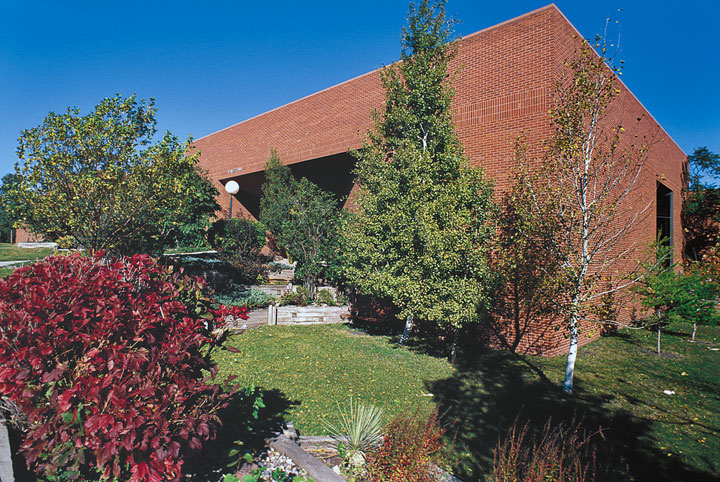Microbiology is a fundamental biological science concerned with bacteria, viruses, and other microbes. Microbiologists have made some of the most important scientific discoveries. Since 1910, approximately one-third of the Nobel Prizes in medicine and physiology have been awarded to microbiologists. The discipline covers a wide spectrum of specialized interest areas that show how microbes affect human and animal health, agriculture, our environment, food technology and safety, and the biotechnology industry. Microbiology prepares students for a wide range of important career opportunities.
In recent years, microbiology has had a major impact on virtually all other scientific disciplines. For this reason, students who choose to major in microbiology often minor in biotechnology, chemistry, or food safety. Students who choose to major in other fields may find it advantageous to minor in microbiology.
CAREER OPPORTUNITIES
Graduates may seek employment in the health sciences, biomedical industries, biotechnology, agricultural biosystems, food industries, pharmaceutical industries, and government agencies. Our graduates work in public health, hospital laboratories, quality control laboratories to ensure a safe food supply, academic, government, or private research laboratories, biotechnology production laboratories, and even breweries. Many microbiologists are teachers and professors, and many of our graduates attend graduate or professional school to continue their career development. Microbiologists work in government agencies such as state public health units, the National Institutes of Health (NIH), the Centers for Disease Control (CDC), the United States Department of Agriculture (USDA), and the Environmental Protection Agency (EPA).
Scholarship Opportunities
Students who major in microbiology can apply for part of ~$12,000 in scholarships that are dedicated funds for our major and ~$7500 in scholarships for Microbiology Majors planning to apply for veterinary school. Visit the website for microbiology specific scholarships.
High School Preparation
Courses in science and mathematics, such as algebra, biology, physics, and chemistry, will help students prepare for a major in microbiology.
Transfer student PREPARATION
Transfer students are strongly advised to take transferable intro biology and chemistry courses in preparation for upper-level science courses at NDSU.
The Curriculum
During the first year, students in microbiology take basic college courses in English, chemistry, biology, and mathematics. The curriculum over the next three years includes advanced microbiology and life sciences courses. These courses include microbial physiology, microbial genetics, virology, immunology, and microbial ecology. Students majoring in microbiology can enhance their understanding of applied microbiology and infectious disease by taking courses such as pathogenic microbiology, clinical parasitology, food microbiology, and microbial genomics. Students may choose to minor in programs such as biotechnology, public health, and food safety.
Program Outcomes
-
Demonstrate a familiarity with professional and ethical behavior in microbiology.
-
Identify and explain microbiology discipline-specific knowledge and concepts.
-
Describe the process of scholarly inquiry in microbiology
-
Perform classical and modern microbiological techniques with consistency.
-
Communicate scientific results and scientific understanding to a chosen audience.
-
Participates effectively as a team member in collaborative work.
-
Exhibit professional skills and personal effectiveness to enter the job market.
-
Describe their role and begin participating in being civically responsible, contributing citizens, and creating inclusive environments.
Pathways to Success
The department of Microbiological Sciences offers several “Pathways to Success.” Depending on your career goals, you may find that one of these pathways will enhance your education to meet those goals. We currently have Pathways to Success inGeneral Microbiology, Pre-Health Careers, Pre-Veterinary careers, Biotechnology (Double Major), and Accelerated Master's (Public Health or Microbiology).
STUDENT ORGANIZATIONS
We have an active Biotechnology and Microbiology Club that tours local businesses related to biotechnology and microbiology, hosts guest speakers currently working in the fields of microbiology and biotechnology, and meets for social events throughout the year.
The Faculty
The teaching faculty offers expertise and experience in a variety of microbiology areas. Additionally, faculty members are active researchers and devoted research mentors. Our undergraduates have opportunities to perform cutting-edge research in nationally funded laboratories.
The FACILITIES
The Department of Microbiological Sciences in Van Es Hall has well-equipped teaching and research laboratories, including our Biotechnology Innovation Core. Several courses are taught in the dedicated STEM education building, A. Glenn Hill Center.
Post Graduate Opportunities
Professional School Preparation. The microbiology major is excellent preparation for professional school, including medical, veterinary, dental, optometry, and physician assistant programs.
Graduate School. The microbiology major emphasizes experiential learning in coursework and research laboratories that provide the foundation to be successful in graduate school. We even offer an accelerated master's program to help students optimize their timeline to completing their graduate degree while finishing their bachelor's degree.
Sample Program Guide
IMPORTANT DISCLAIMER: This guide is not an official curriculum. This guide is a sample four-year degree plan of how students might plan this major with other degree requirements to complete their education in four years.Student plans will vary from this sample due to a variety of factors, such as, but not limited to, start year, education goals, transfer credit, and course availability. To ensure proper degree completion, enrolled students should utilize Degree Map and Schedule Planner in Campus Connection and consult regularly with academic advisors to ensure graduation requirements are being met.

